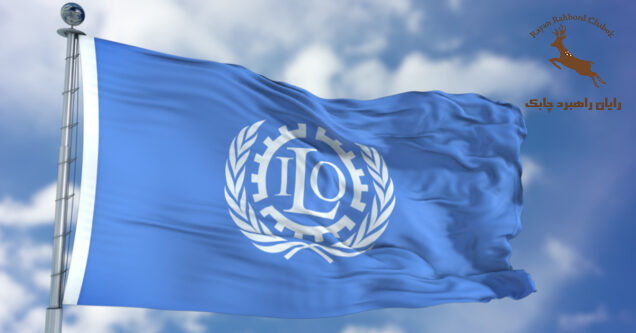Considering the ongoing negotiations regarding the minimum wage and the increase in Iran workers’ wages between workers’ representatives, employers’ representatives and the government in the final days of the year, paying attention to expert solutions and recommendations to adjust it and reach an agreement can be useful.
As the attention of a large part of society has been drawn to the results of these negotiations; On this occasion, it is significant to examine the approaches to compensation that is used by different countries, including recommendations and international agreements such as the International-Labor Organization.

The International-Labor Organization was formed after the end of the First World War in 1919, by the Versailles Peace Conference.
Since 1921, with the approval of the then parliament, Iran has been sending a representative to the international work conference.
In this regard, based on the minimum wage policy guide published by the International Labor Organization, it is useful to look at the concepts, background and cause of this action.
Definition and reason for using the minimum wage
The minimum-wage is the minimum amount that an employer must pay to the recipients as compensation in a certain period. This amount cannot be reduced by collective agreements or individual labor contracts.
The minimum-wage ensures that everyone benefits from the fruits of progress and development, and by defining it, working people are protected from the cost of living. It is also a way to prevent discrimination between men and women.
For this reason, about 90% of the member countries of the International Labor Organization (ILO) have bound themselves to determine the minimum wage.
International conventions regarding minimum wages
If we look at the history of the minimum wage, the purpose of its definition was initially a policy for selected industries that had low wages. It has then evolved into an important tool for much wider advocacy. Conventions of the International Labor Organization show this evolution well as follows:
Convention No. 26, adopted in 1928 to determine the mechanism for determining minimum wages, encourages member states to establish minimum wages in sectors where there are no effective wage regulations and no collective agreements or other methods for this purpose. And at the same time the wages are exceptionally low.
Years later, in 1970, Convention No. 131 on the Determination of Minimum Wages was implemented to protect all groups that receive wages but whose employment conditions require such protection. The important point is that the method of consultation with social partners is at the heart of this convention.
Dr. Morad Ahmadipour — Human resource management consultant and international methods of compensation
• Taken from the minimum-wage policy guide — published by the International-Labor Organization
Minimum-wage Regulations of Iran for 1403 (2024- 2025)
International-Labor Organization
Rayan Rahbord HR Consulting Services in Iran
مطالب و مقالات مشابه:
ویژگیهای خاص کارگاههای آموزشی رایان راهبرد چیست؟
کارگاههای رایان راهبرد بر اساس مدلها و روشهای روز دنیا و با رویکرد ایجاد مهارت تخصصی تدارک دیده شدهاند و یادگیری انجام موضوع آموزش پس از مشارکت فعال تضمین شده است. این مهارتها برای مدیران و متخصصان منابع انسانی یک مزیت رقابتی ایجاد میکنند تا در موقعیتهای شغلی مناسبی در این حرفه قرار گیرند.
رویکرد رایان راهبرد در ارائۀ خدمات مشاوره منابع انسانی چگونه است؟
رایان راهبرد تأکید زیادی به درونیسازی متدهای به کار گرفتهشده در سازمانها دارد. به طوری که تمامی پروژههای مشاوره پس از آموزش به ذینفعان و متولیان منابع انسانی سازمان آغاز میشوند. بدین ترتیب اجرا با آگاهی از دورنما و تسلط بر تکنیک همراه خواهد بود. سازمان نیز در آینده وابسته به مشاور نبوده و میتواند خود، بهروزرسانیها را متناسب با تغییرات پیش برد.
مطالب و یادداشتهای وب سایت رایان راهبرد چابک چه ویژگیهایی دارد؟
کادر تحریریه رایان راهبرد چابک متشکل از متخصصان منابع انسانی با تسلط بر روزنامهنگاری است و متفاوت با فعالان دیجیتال مارکتینگ فعال در فضای مجازی و شبکههای اجتماعی، به کیفیت محتوا وفادارند. مطالب و یادداشتهایی که در وب سایت منتشر میشوند، عمدتاً محتوای تولیدی و یا ترجمهای از روندها و سیگنالهای موجود در فضای جهانی منابع انسانی است که خاص رایان راهبرد است. این محتواها برای اولین بار به زبان فارسی منتشر میشوند.

